Eastern League AA
 The
Eastern League is a professional league which falls under the umbrella of
Minor League
Baseball, also known as the National Association of Professional Baseball
Leagues (NAPBL), the governing body of minor league baseball.
The
Eastern League is a professional league which falls under the umbrella of
Minor League
Baseball, also known as the National Association of Professional Baseball
Leagues (NAPBL), the governing body of minor league baseball.
All teams in the NAPBL are affiliated with a major-league organization. In the
Eastern League there are 12-teams, split in two six-team divisions.
The top two finishers
in each division qualify for the playoffs. The semi-finals are set up as a best
of five, with the division winner hosting games one, two, and five if necessary.
The championship is also a best of five, and played under a two-three format
with the team hosting the last three games alternating divisions each year. In
2003 the Southern Division Champion will host the final three games.
The league President is Joe McEacharn, who took office in
January of 2003,
and works from his headquarters in Portland, Maine. The Eastern League was
originally formed on March 23, 1923, and although it has gone by different names
and been host to many cities over the years, it is considered one of the
premier leagues in the country. The 12 teams cover almost all the major
metropolitan areas along the Atlantic Seaboard through New England.
Many of the game's greatest stars have cut their mold on Eastern League
diamonds. Players like Mike Schmidt, Roger Clemens, Juan Marichal, Nolan Ryan,
Whitey Ford, Bernie Williams, Jim Palmer, Ken Griffey Jr., Ralph Kiner, Nomar
Garciaparra, Bob Lemon, and Derek Jeter have all passed through on their way to
major-league stardom.
(Eastern League Information provided by
Norwich Navigators website.)
These are the
current teams in the Eastern League:
 Akron
Aeros (Cleveland Indians)
Akron
Aeros (Cleveland Indians)
Owner Mike Agganis purchased the franchise,
which began play in 1981, as the Lynn Sailors in Lynn, Massachusetts. The team
then moved to Burlington, Vermont, where it became affiliated with the
Cincinnati Reds and later the Seattle Mariners.
In 1989, the club moved to Canton, Ohio,
becoming the Canton-Akron Indians, the Cleveland Indians "AA" affiliate. The
Little Indians went on to win the Eastern League Regular Season Championship in
1992, and earned a berth in the EL playoffs in each of its first five seasons.
After eight seasons in Canton, Agganis
relocated the franchise to Akron in 1997. 2001 will mark the franchise's 13th
year in the Eastern League and 13th year as the Indians' Double-A partner. Canal
Park, another gem on the growing list of H.O.K. ballparks, features 8,500
individual reserved seats, 25 luxury suites, as well as the largest full-service
restaurant, merchandise team store, and free-standing scoreboard in minor league
baseball.
Now in only the Aeros' fifth season in Akron,
the organization has already achieved milestones: three straight Eastern League
attendance records from 1997-1999; only the second Class "AA" franchise ever to
draw over a half million fans; and the club's first playoff berth since 1993.
(Information provided by
Akron Aeros website.)
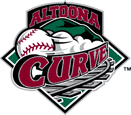 Altoona Curve (Pittsburgh
Pirates)
Altoona Curve (Pittsburgh
Pirates)
Like many other decisions in baseball, the
latest round of major league expansion had a domino effect on the minor leagues.
In 1995, Arizona and Tampa Bay were awarded major league franchises to play
their inaugural season in 1998. To keep pace, baseball's rookie level added two
teams in 1996. The following year, Class 'A' and Class 'AAA' each increased by
two teams.
That left only Class 'AA' in need of expansion
to match the number of teams in the big leagues. In 1997, the National
Association of Professional Baseball Leagues, as it was then called, decided the
Eastern League would receive the two new franchises to start play in 1999. Erie
was an easy first choice of the NAPBL's expansion committee. After all, the
SeaWolves had established short-season attendance records in the new Uht Park as
part of the New York-Penn League.
The awarding of the second franchise wasn't
easy. For months, it seemed Springfield, Massachusetts would land the team.
However, an inability to finalize land and stadium finance deals left the NAPBL
looking for another option. Enter Altoona. City native Bob Lozinak, Bedford
developer Tate DeWeese, and a group of Pennsylvania lawmakers put together an
eleventh-hour stadium financing package and site plan. The proposal was
presented to the expansion committee at an October 5, 1997 meeting in Las Vegas.
It received unanimous approval and Double-A baseball was on its way to Central
Pennsylvania.
Ballpark groundbreaking ceremonies took place
in March 1998 and the franchise was officially awarded the following month. In
June of that year, the Altoona entry selected "Curve" as its nickname. The
combination railroad/baseball moniker beat out several choices like "Lake
Monsters", "Ridge Runners", and believe it or not, "Fish"!
The next step for the Curve was affiliating
with a major league team. Erie seemed to have an inside track on becoming the
Pirates' new Double-A affiliate, as the SeaWolves had served as Pittsburgh's
short-season club from 1995-98. However, after a series of meetings with
potential major league parent clubs, the Curve landed the coveted affiliation
with the Pirates. The September 1998 announcement took the franchise to another
level as the U.S. 22 pairing seemed an ideal fit. Central Pennsylvania baseball
fans, with their strong Pirates' roots, could now cheer for the Buccos' top
prospects on their way to Pittsburgh.
The long-awaited first game in Curve history
took place on April 9, 1999 in Reading, PA. The game against the Phillies'
affiliate was suspended by rain and completed the next day as part of a
doubleheader. For the record, the Curve lost its first contest, 6-2, but
recorded its first win hours later with a 6-4 decision in game two of the April
10 twinbill.
Finally, the Curve christened Blair County
Ballpark on April 15 with a triumph over the Bowie Baysox. A huge crowd of 6,171
attended the history-making contest despite cold, rainy weather.
After three remarkable seasons, the Lozinak
family sold the franchise to a group headed by Pittsburgh attorney Chuck
Greenberg on April 2, 2002. Among the limited partners in Greenberg's
collective: Pittsburgh Penguins' owner, star center and NHL Hall of Famer Mario
Lemieux; Pittsburgh Steelers' all-pro running back Jerome Bettis; Altoona-based
businessmen Steve Sheetz and Don Devorris and DeWeese.
(Information provided by
Altoona Curve website.)
 Binghamton Mets (New
York Mets)
Binghamton Mets (New
York Mets)
 Bowie Baysox (Baltimore
Orioles)
Bowie Baysox (Baltimore
Orioles)
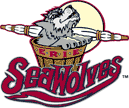 Erie
SeaWolves (Anaheim Angels)
Erie
SeaWolves (Anaheim Angels)
In 1995,
the Erie SeaWolves began play in the New York/Penn League as the Class A
affiliate of the Pittsburgh Pirates. The team adopted the name SeaWolves due to
the City’s proximity to the lake, the historical factors of Lake Erie and its
relationship with the Pirates. In the English language, the word SeaWolves is
synonymous with Pirates, individuals who commit or practice piracy. SeaWolves
are robbers on the high seas.
The SeaWolves,
having changed their logo for the past two seasons while with the Anaheim
Angels, have gone back to a similar version of their original logo of the bats
crossing, since they are now the Double A affiliate of the Detroit Tigers. The
new logo consists of a tyrant wolf with a pirate hat and a patch over his left
eye. C. Wolf also has on an orange bandanna and scarf to support the new team
colors of black and orange.
Erie,
Pennsylvania is one of the oldest port cities in the United States and is home
to the second oldest warship, the Flagship Brig Niagara. During the War of 1812,
the US Navy led by Commodore Oliver Hazard Perry and the Flagship Brig Niagara
defeated the British Navy in the Battle of Lake Erie.
Lake Erie is home
to several major cities in the United States and Canada including, Buffalo, NY;
Erie, PA; Cleveland, OH; Detroit, MI and Toronto, Ontario.
The Erie
SeaWolves are proud to be a valuable member of this beautiful historical city.
While the SeaWolves of today do not commit piracy at Sea, they have been known
to steal a few bases at Jerry Uht Ballpark as well as the hearts of their fans.
(Information provided by
Erie SeaWolves website.)
 Harrisburg Senators (Montreal Expos)
Harrisburg Senators (Montreal Expos)
Baseball in Harrisburg dates back to 1907, when the local team played in the
class "D" Tri-State League. After the 1952 season, the then Harrisburg Senators
and the class "B" league they played in at the time called it quits, but not
before the team created some shocking controversy....
You play ball like a.... GIRL!
In 1952 the club signed twenty-four-year-old Eleanor Engle, a local (yes,
female) stenographer to play shortstop, saying "She can hit a lot better than
some of the fellows." For four days in June, Engle suited up for the Senators,
but she never played. What an uproar! Even the team manager didn't want a "girl"
playing on the team.
Eventually NAPBL president George Trautman voided her signing. Some thought the
whole thing was a publicity stunt, but a reporter, after watching her practice
wrote the Eleanor "...scooped up hard grounders and threw to first base like a
pro."
Modern Day Incarnations
In 1987, the sport came back to a brand-new ballpark. The Eastern League
franchise was named in honor of the previous tenants, linking the modern day to
the past. The Senators have been phenomenally successful... over the past 12
years they have sent up more than 100 players to the Major Leagues.
Following their long tradition of baseball excellence, in 1996, 1997, 1998 and
1999 the Senators proved they were a force to contend with by winning the
Eastern League Championship! Harrisburg is the first team in league history to
win four Eastern League titles in a row.
(Information provided by
Harrisburg Senators
website.)
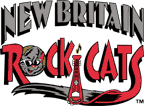 New Britain Rockcats (Minnesota Twins)
New Britain Rockcats (Minnesota Twins)
The 2002 season marks the 29th anniversary of the New Britain
Baseball Club. The franchise originated in Bristol, CT as the AA affiliate of
the Boston Red Sox. The Bristol Red Sox called Muzzy Field home from 1973-1982
until then-owner Joe Buzas relocated his club to its current home in New
Britain’s Willowbrook Park. The club remained a farm club of Boston’s and, in
fact, the New Britain Red Sox won the 1983 Eastern League Championship in their
very first season as tenants of brand new Beehive Field. Led by rookie pitcher
Roger Clemens, New Britain defeated the Lynn (MA) Pirates, three-games-to-one,
in collecting the franchise’s fourth E.L. title (three in Bristol) up to that
point.
New Britain’s 21-year affiliation with the Boston Red Sox came to an end prior
to the 1995 season as the club signed a Player Development Contract with the
Minnesota Twins. The Red Sox moved their AA club to Trenton, N.J. New Britain
changed their nickname to the Hardware City Rock Cats in honor of the city’s
reputation as a highly industrial community. After 13 seasons of baseball at
Beehive Field, the Rock Cats moved into their current home, New Britain Stadium.
Referred to by some as the “Emerald of the Eastern League”, the 6,146-seat
ballpark contains 12 luxury skyboxes, three picnic areas (including the Pepsi
Picnic Patio which debuted in May, 2001), a video message center, and a 65-foot
electronic scoreboard.
The franchise dropped Hardware City from their nickname in 1997 and have been
known as the New Britain Rock Cats ever since. On August 18th of that season,
the Minnesota Twins battled their farmhands in an exhibition game at New Britain
Stadium. The contest marked the first time in over half a century that a Major
League club played baseball in the State of Connecticut. A sell-out crowd
witnessed a 3-0 shutout by the Rock Cats against a Twins lineup bearing the
likes of Chuck Knoblauch, Roberto Kelly, Paul Molitor, and Terry Steinbach.
The 1998 Rock Cats earned the Northern Division regular season title with a
then-franchise record 83 victories. Eastern League Pitcher of the Year Brent
Stentz established a new Eastern League record by saving 43 games for the ‘Cats
while RHP Michael Lincoln set a New Britain franchise record with his 15
victories. The Rock Cats eventually succumbed to the Harrisburg Senators in the
Eastern League Championship Series.
On February, 22, 2000 one era ended and another began with the sale of the New
Britain baseball franchise by Buzas Enterprises, Inc. to investment group headed
by local attorney Coleman B. Levy and former New York Yankees Vice President
William F. Dowling. Under Dowling and Levy’s tutelage, the Rock Cats shattered
every attendance record in franchise history, which includes largest crowd
(6,622), largest opening day crowd (6,452), and largest season attendance total
(220,127). Dowling, who serves as the club’s President/General Manager, earned
accolades in December when the Eastern League selected him as their Executive of
the Year for his immediate success with the club.
The New Britain Rock Cats experienced the most successful season of their
history in the Hardware City during the 2001 campaign. On the field, the Rock
Cats won a franchise-high 87 ballgames and earned their second Northern Division
regular season title in four seasons. New Britain defeated the in-state rival
Norwich Navigators, three-games-to-one in a memorable Northern Division
Championship Series to earn a berth in the E.L. Championship Series vs. the
Reading Phillies. Unfortunately, that series never began due to the National
tragedies of September 11th. Both the Rock Cats and R-Phils were named Eastern
League Co-Champions, giving New Britain their second title and the franchise its
fifth since 1973. Stan Cliburn earned Eastern League Manager of the Year honors
for his club’s outstanding play. OF Dustan Mohr and 3B Michael Cuddyer, both
Eastern League All-Stars, enjoyed remarkable seasons in 2001. Mohr established
new club records with his E.L. leading batting average of .336 and 174 total
hits. Cuddyer leaves New Britain as the most prolific home run hitter in team
history with his record 30 long balls in 2001 and 36 career homers wearing a
Rock Cats uniform.
(Information provided by
New Britain Rockcats website.)
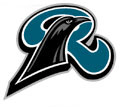 New
Haven Ravens (Toronto Blue Jays)
New
Haven Ravens (Toronto Blue Jays)
Link to Article that was
reprinted from 2001 Souvenir Program
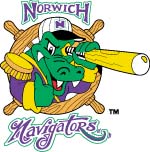 Norwich Navigators (San Francisco Giants)
Norwich Navigators (San Francisco Giants)
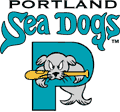 Portland Sea Dogs
(Boston Red Sox)
Portland Sea Dogs
(Boston Red Sox)
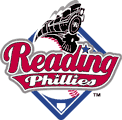 Reading Phillies (Philadelphia Phillies)
Reading Phillies (Philadelphia Phillies)
Minor League Baseball has been in existence in Reading since
the late 1800’s. Teams such as the Reading Aces, Coal Heavers and Coal Barons
were the pioneers of the sport on the professional level in the city of Reading.
The modern era of professional baseball in Reading began in 1950 with the
construction of Reading Municipal Memorial Stadium. Built at a cost of $600,000
the stadium has gone through over 4 million dollars in renovations over the last
12 years to make it a showplace for Minor League Baseball. The stadium was
renamed GPU Stadium at a press conference November 19, 1999.
In June, 1998 Baseball America ranked the city of Reading as the No. 3 Minor
League Baseball City in the National Association of Professional Baseball
Leagues. Only Rochester and Durham finished higher than Reading in the field of
158 North American cities.
Many great baseball names have played professionally in Reading at the minor
league league level before moving to the Major Leagues. The likes of manager
George "Whitey" Kurowski, Rocky Colavito and Roger Maris all played a key role
in developing a strong reputation for Reading as a "Baseball Town". The 1999
season will mark the 48th year that Reading has had a club in the modern
established Eastern League.
Eastern League teams that have played in the city of Reading have been crowned
Eastern League Champions four times. The city saw it’s first Eastern League
Championship in 1957. Affiliated with the Cleveland Indians, Reading finished
the regular season with a 74-66 record. The Indians took the league title with a
6-1 mark during the post-season.
After a brief affiliation with the Boston Red Sox in 1963-64, and one final
season with the Indians in 1965, minor league baseball in Reading became what it
is known as today. 1967 was the inaugural season in which the city was
affiliated with the Philadelphia Phillies. Reading has been the home of
Philadelphia’s double-A franchise for 33 years. That is the fourth longest
affiliation with a parent club in baseball today.
In only the second season of the Reading Phillies existence, the club won it’s
first Eastern League title. That year the Phillies had a shortstop play for them
who would go on to help Philadelphia win several National League East titles,
and the 1980 World Series. His name was Larry Bowa. The 1968 championship was
the city’s second. Five years later in 1973, Reading defeated Pittsfield three
games to one for the city’s third title.
The city of Reading was the home of three Eastern League champions over the
course of a 17-year span. Only Elmira, NY, could top Reading’s run, with four
championships.
After 17 years of producing three league champions, Reading would suffer through
a 20-year drought . Reading finished with the best regular season record three
times, 1975, 1983, and 1986. Darren Daulton and Juan Samuel led the 1983 team to
an R-Phils record 96 wins. However, Reading did not win the league title from
1974-1994 and had a winning percentage of .488 (1443-1517).
Reading returned to the top of the Eastern League by winning the league title in
1995. The Phillies finished the regular season tied for the best record in the
Southern Division with Trenton. Each had a 73-69 mark. In the post season the
Phillies swept Trenton 3-0 in the first round of the Eastern League playoffs. In
the Championship Series Reading defeated New Haven, 3-2, winning Game Five at
home. Reading hit .299 as a team in the playoffs, in eight games. The team also
hit 21 home runs during the 1995 playoffs after they set a, since broken,
club-record with 118 during the year, good enough for the league lead.
(Information provided by
Reading Phillies website.)
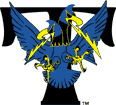 Trenton
Thunder (New York Yankees)
Trenton
Thunder (New York Yankees)
Professional baseball made a triumphant return
to New Jersey on May 9, 1994 at Trenton's Mercer County Waterfront Park.
Professional baseball had been absent from New Jersey for over a decade. The
city of Trenton had been without a team since 1950, when residents watched
Willie Mays play for the Trenton Giants.
The Trenton Thunder made their debut on April
8, 1994 as the Detroit Tiger's Eastern League (Double-A) affiliate, but spent
their first month on the road while their stadium was completed. The Thunder
quickly developed a strong following, featuring fan favorite (and current
New York Met) Tony Clark. They finished their debut season with a 55-85
record, last place in the Southern Division.
The Thunder became the Double-A affiliate of
the Boston Red Sox for the 1995 season. The new affiliation paid off immediately
with a 73-69 record, landing them a tie for first place in their division, and a
trip to the Eastern League playoffs. The 1995 team showcased rising prospect
Nomar Garciaparra (1997 American League Rookie of the Year with Boston). The
Thunder were swept in three games in that series by the Reading Phillies.
The 1996 season was the most successful season
yet, as the Thunder compiled a league-best 86-56 record. During the season,
Trenton played host to the 1996 Double-A Association All-Star Game on July 8th.
The season ended with Trenton dropping a playoff series 1-3 to the Harrisburg
Senators, who went on to win the league championship.
Trenton's fourth season was not as rewarding as
the previous two seasons. The Thunder finished in fourth place in the Southern
Division with a 71-70 record.
The next season featured the return of Major League
Baseball to Trenton in an exhibition game between the Thunder and their parent
club, the Boston Red Sox, on May 28, 1998. The Red Sox narrowly defeated their
farm team 4-3. The game marked the first time a major league team played at
Trenton since the Washington Senators played the Eastern League's Trenton
Senators in a 1936 exhibition game. The 1998 season was a virtual carbon copy of
the previous season with the Thunder once again posting a 71-70 record, narrowly
missing the playoffs.
The Thunder have been packing in the fans since
their Trenton debut in May of 1994, averaging sell out crowds! Their average of
over 450,000 fans a season is among the top attendances the Eastern League has
seen. Their success has silenced the critics and paved the way for the arrival
of other minor league sports to the Trenton area, like the East Coast Hockey League's
Trenton Titans, and the International Basketball League's Trenton Shooting
Stars, both slated to begin play in the fall of 1999.
The Trenton Thunder has switched divisions for
the 1999 season to accommodate the Eastern League's two new additions: the Erie
SeaWolves and the Altoona Curve. The Thunder joined the Northern Division with
Binghamton, New Britain, New Haven, Norwich, and Portland. Altoona and Erie have
joined the Southern Division with Akron, Bowie, Harrisburg, and Reading. On June
13, 1999, their stadium, Mercer County Waterfront Park, was re-dedicated as
Samuel J. Plumeri Sr. Field in honor of the man who helped return baseball to
Trenton. Plumeri, a co-owner of the Thunder, passed away at the
age of 84.
Trenton ran away with the division with the
league's best record from start to finish for the 1999 season! But the Thunder could not get past the Norwich Navigators, falling 2 games to 3 in the
Northern Division Championship Series.
1999 EASTERN LEAGUE PLAYOFFS
Manager DeMarlo Hale opted to leave the Boston
Red Sox organization after 1999 to manage the Triple-A Oklahoma City Red Hawks
for the Texas Rangers. Billy Gardner was selected as his replacement. The
Thunder also hired a new General Manager for the 2000 season as Rick Brenner
replaced Wayne Hodes, who accepted a position with the NFL's New Orleans Saints.
The 2000 season was dismal for the Thunder, their worst since their inaugural
season, a stark contrast to the previous Summer. The 2001 season turned out to
be a carbon copy. During the off-season, former Sarasota Red Sox (A - Florida
State League) manager Ron Johnson was selected to replace Gardner as manager of
the Trenton Thunder.
(Information provided by
Titans101.com website.)
This web site is not affiliated with or endorsed by the Eastern League.
The logos are property of the Eastern League and their associated Teams and are
used here without official permission.
 The
Eastern League is a professional league which falls under the umbrella of
Minor League
Baseball, also known as the National Association of Professional Baseball
Leagues (NAPBL), the governing body of minor league baseball.
The
Eastern League is a professional league which falls under the umbrella of
Minor League
Baseball, also known as the National Association of Professional Baseball
Leagues (NAPBL), the governing body of minor league baseball.










